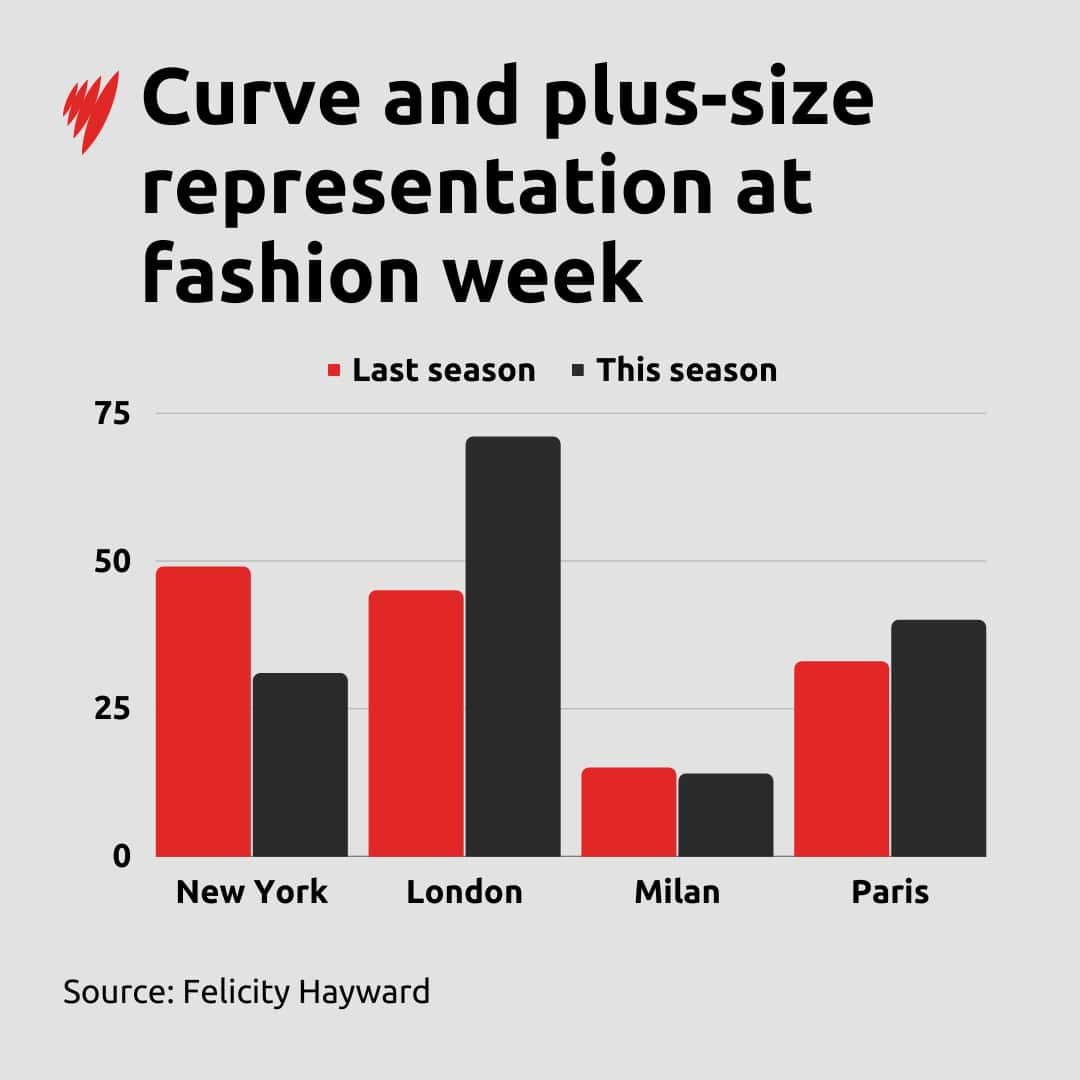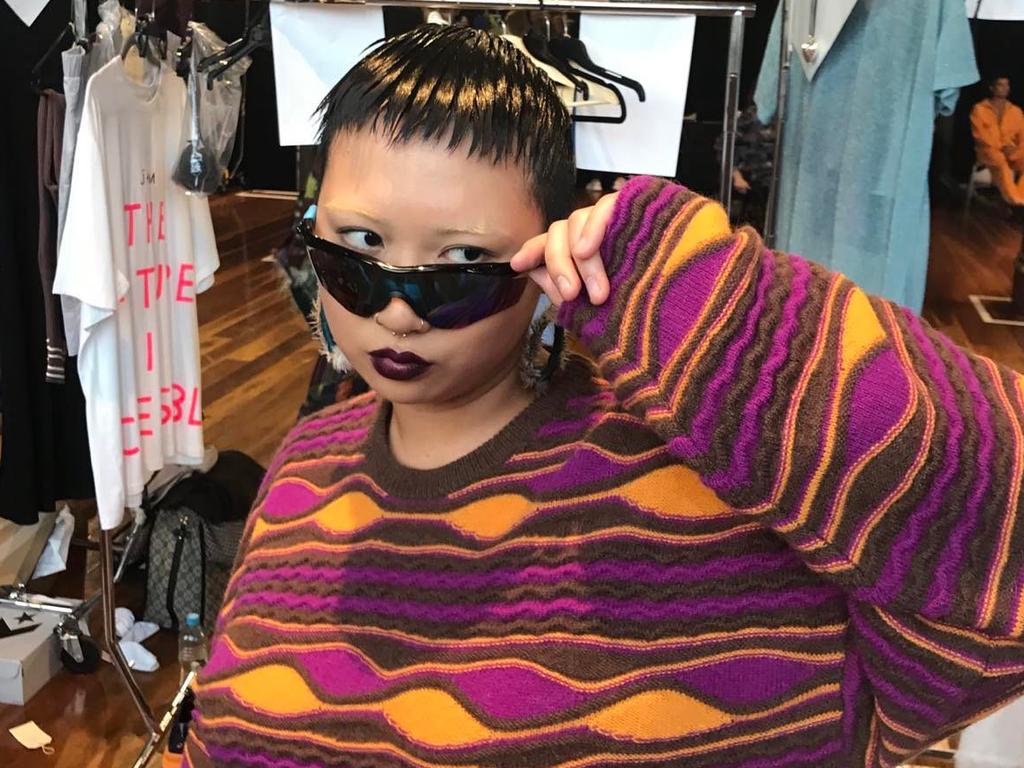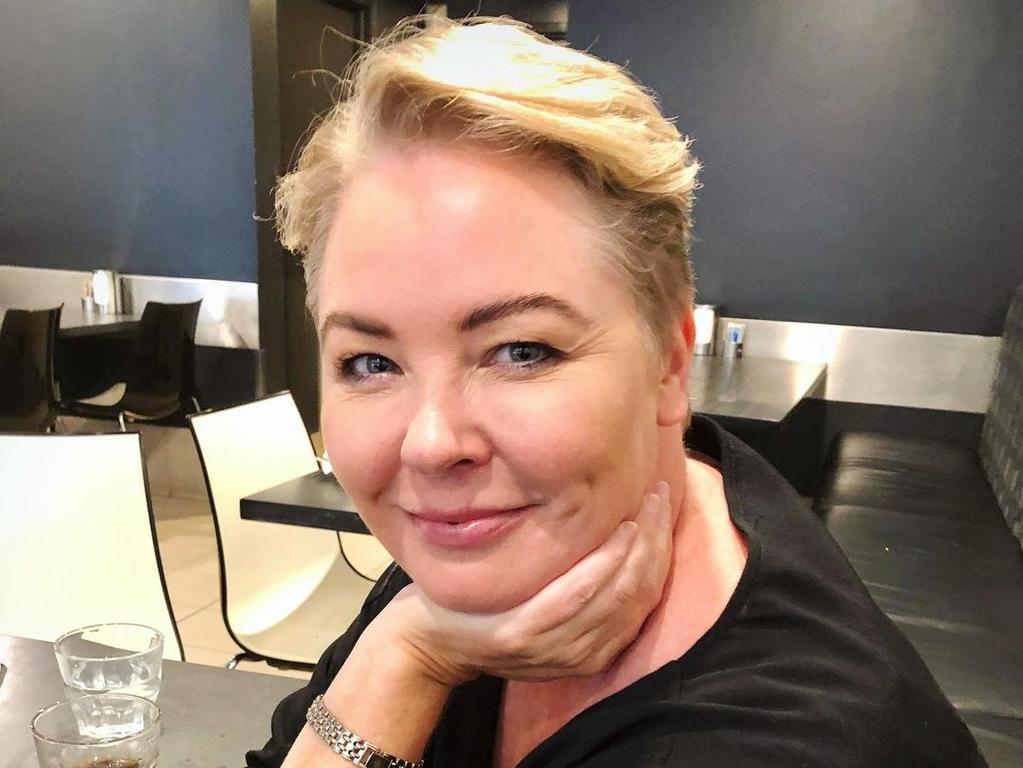People within the modelling industry crackdown on a lack of body diversity in fashion across the world, particularly in Australia.

Over the past decade, there has been a plausible increase in body diversity in the fashion world. Nowadays, plus-sized models walk on runways and star on the covers of prestigious magazines.
However, Australian model and activist Jennifer Atilémile has noticed a shift backwards. She suspects that the re-emergence of Y2K fashion, associated with ‘heroin-chic’ ideals, has rocked the boat.

There has been a pertinent decline in the number of plus-sized models in major runways, such as New York Fashion Week. Yet, increases are evident in others, including London and Paris Fashion Weeks.
Melbourne Fashion Festival: A Bitter Disappointment
Australian models and agencies criticised this year’s Melbourne Fashion Festival (MFF) for their lack of plus-sized models or models of disability on their runways.
Despite having a plus-size runway ‘Fabulous And Trendy (F.A.T)’, the models were treated poorly.
Jess Seeto, a plus-sized model at the festival, felt alienated and like a “token ethnic fat person…just there to tick a box”.
MFF forced the model to try on size 12 garments, despite being a size 16 model. Furthermore, plus-sized models wore baggy clothing whilst straight-sized models adorned ball gowns and tight-fitting clothing.
An MFF spokesperson responded, saying they would have taken action if the festival was made aware of models being uncomfortable.

For Chelsea Bonner and her modelling agency Bella Management, this was not enough.
Bonner presents MFF with all her models up to a size 22, yet no one over size 14 was cast. All the numerous follow-ups about the matter did nothing.
She proves that “the models on that runway represent 1 per cent of the population” with statistics:
“67 per cent of Australian women are size 14 to 16, and the rest of the population is either over size 16, or between a size 10 and a size 12.”
Many models and activists worry about the message MFF is conveying to the world. The normalisation of body diversity in the fashion arena is far from achieved, and this is yet another step in the wrong direction.

Bonner warns Australia of the dangers of fatphobia:
“(Fatphobia) corrupts the thinking of everybody involved, not just the models. It corrupts the stylists, the casting directors, the magazines for advertisers,”
Subscribe to FIB’s Weekly Breaking News Report for your weekly dose of music, fashion and pop culture news!






